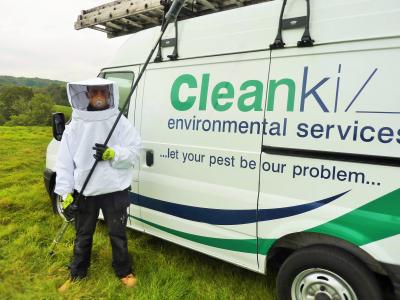At the end of September, I was asked to give a speech in front of the Sutton United Business Club luncheon group. The event attracted 76 delegates from 62 Sutton-based businesses. I decided to talk on a range of subjects, starting with a general overview of modern pest control and British attitudes to pest control. To read our news item, click here.
It’s always been amazing to me that UK attitudes and US attitudes differ so greatly. In the UK, if a pest control vehicle is seen outside a building, the instant assumption is that there is a problem and this is bad. British people generally see pest control in a negative light. In America, the first thought that goes through a person’s mind when they see a pest controller is that the owner of the property is taking a sensible approach to preventative pest control. In my opinion, America has got it right for once. All properties, but especially commercial properties, should have visits from professional pest controllers regularly throughout the year. In the case of the standard pest control contract, this is about eight a year but on the case of food or pharmaceutical preparation facilities it should be higher.
This isn’t just me touting for business. A quick look at the papers will show the consequences of failing to ensure effective pest control. Every week there are stories of businesses being shut down by environmental health officers and huge fines for failing to ensure public health. It is a nation-wide problem and it isn’t going away.
This brought me to the second point of my talk. As I was driving to the football ground I passed a sign offering wasps’ nest removal for £35. My question is: how can you professionally train your staff, pay your staff a fair wage, ensure adequate insurance for both the staff and the client’s property, and still make a profit when you are charging only £35 to remove wasps’ nests? In my opinion, something has to give and, in my experience, it is all of those factors (with the possible exception of the profit).
If you are having trouble sleeping, I can always furnish you with a spreadsheet of how much Cleankill spends on training and accreditation schemes but, the truth is, we know it is worth it. Having highly trained technicians isn’t a luxury for Cleankill, it is a necessity. It means, when we send a technician to a site, we know they are going to have the expertise to deal with 99% of call-outs in an efficient, safe and professional manner. If they find themselves facing something difficult that they have never dealt with before, then we have very experienced senior managers to call upon.
For the managers of business premises operating on tight budgets it can seem like a saving to use cheaper pest control or, even worse, no preventative pest control. The reality is, however, if that site then has an infestation one of two things can happen. Firstly, the premises owner or manager will have to call out a team of pest controllers to clear the problem. This will often be more expensive than a simple maintenance contract. Secondly, the authorities can become involved. In this case, again, pest controllers will need to be brought in but there is also the potential for expense relating to legal proceedings and the company’s reputation of course could be damaged.
As winter arrives, it is a good time to be thinking about preventative pest control. Your building will start to look very attractive with its warmth and ready supplies of food and bedding. It’s sensible, therefore, to consider ways in which you can stop the pests entering your property. To learn more about sensible preventative pest control for your business, read our article in Tomorrow’s FM by clicking here.
If all businesses took a sensible approach to pest control then British people would all get used to seeing pest control vehicles outside buildings and perhaps the general population’s attitude towards this invaluable industry would change.
To read our seven simple steps to keeping you house rodent-free, click here.
